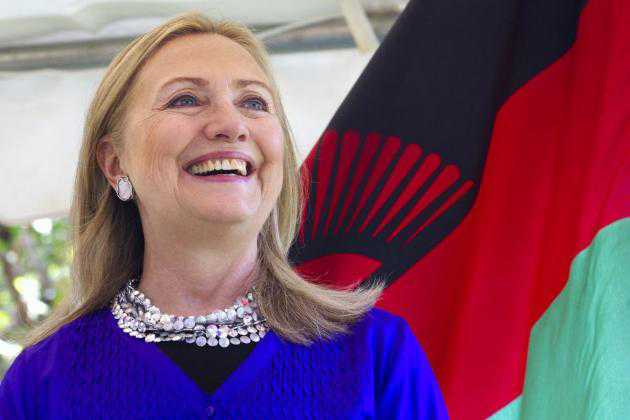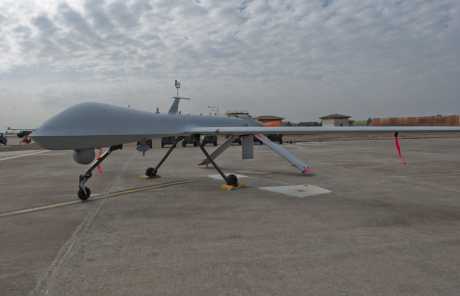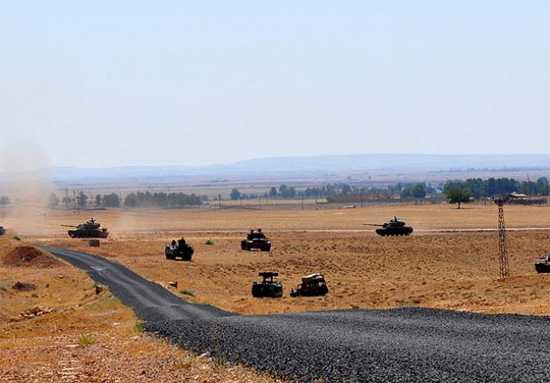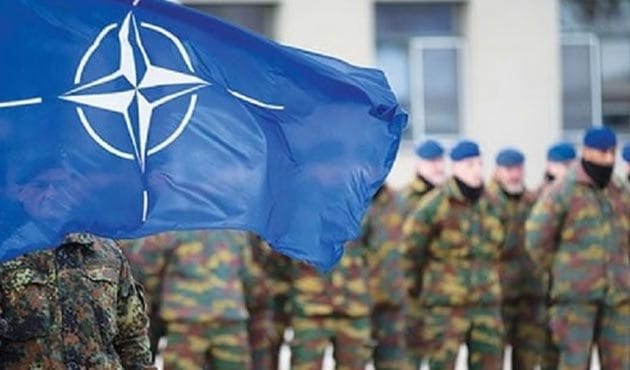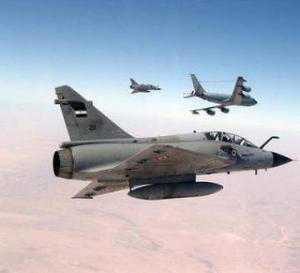Choosing Hegemony: Turkey, NATO and the Path to War
Eric Draitser
StopImperialism.com
August 1, 2012
As the destabilization of Syria has evolved over the course of the last year and a half, what has become apparent to political observers is the seeming incongruity of Turkey’s role in the region. While Ankara has attempted in recent years to establish itself as a force for political and economic change and progress, it has also assumed the role of a NATO attack dog, becoming a crucial weapon in the arsenal of the Western imperialists. While Turkey’s actions in Syria, in particular the sponsorship and coordination of terrorists, must be vigorously condemned, it is also important to note the geopolitical and economic issues at stake for Turkey. In doing so, those of us around the world who reject imperialist meddling and destabilization, who stand in opposition to Western hegemony and proxy states, must help push Turkey back onto the path of peace and progress.
Turkey’s Role in Syria
Anyone who has followed the evolution of the imperialist aggression against Syria has undoubtedly noted the insidious role that Turkey has played. From a diplomatic perspective, Ankara has led the charge in demonizing the Assad regime, saying that it “stands against the will of the Syrian people” and is “killing its own people.” However, the reality is that Turkey, along with its collaborators in Saudi Arabia, Qatar, Lebanon and elsewhere, have done more to fan the flames of violence and instability than the Assad regime ever could.
First and foremost, one must examine the overt sponsorship and hosting of international terrorists on Turkish soil. As Reuters and other news outlets reported last week, Turkey has been operating a terrorist base in Adana, in the vicinity of US-NATO’s base at Incirlik. It is from this base (and others, to be sure) that many of the terrorists have been funneled into Syria. Moreover, these terrorists are not strictly Syrians trying to destabilize their own country. In fact, the majority of those operating from the Turkish base are from Libya, Chechnya, Qatar, and elsewhere. Essentially then, it is clear that, at the behest of Saudi Arabia and Qatar, under the command and control of the Turkish military and intelligence apparatus, the destabilization of Syria has been led. So, it would be fair to say that Turkey has been at the forefront of the attack on its neighbor, acting as a willing partner of NATO, complicit in countless horrendous war crimes perpetrated against the people of Syria.
Hosting and operating terror networks is not the only way in which Ankara has played an instrumental role in exacerbating the conflict. In an article entitled “War at Any Cost: Another Manufactured Pretext for War with Syria”, I analyzed the way in which the Erdogan government attempted to use the downing of one of its jets as a legitimization of war against its neighbor. In the ensuing weeks, and after careful investigation, it has become clear that, at the very least, the Turkish jet had violated Syrian airspace and that the military acted within the confines of international law in their response. It was the rhetoric of Erdogan, Davotoglu and others that was more instructive however. In the aftermath of this event, Erdogan threatened military action against Syria, claiming that the military might pose a threat. Of course, this should be taken to mean that Turkey would have taken upon itself the right to interpret the military of a sovereign state acting within its own borders as a threat, a clear violation of the principles of international relations and law. Essentially, the entire episode with the downing of the jet demonstrated the fact that Erdogan and Co. were willing to allow themselves to be used as NATO’s dagger against Assad.
One integral element of the destabilization campaign has been the use of foreign “diplomatic” entities, primarily the so-called Syrian National Council to act as the ostensible voice of the opposition, while in fact being the mouthpiece of US-NATO. The SNC, led by foundation-funded Western proxies such as Bassma Kodmani, advocates regime change in Syria and supports the loose collection of terror groups and death squads operating under the moniker of the “Free Syrian Army” (FSA). The Council has been hosted by Turkey, receiving financial and diplomatic support from Ankara. This dubious entity has failed to unite the opposition, its one US-NATO delegated task, and has instead become a lightning rod for criticism from much of the international community. It has become clear in recent months that the SNC is, in fact, composed of a number of factions including the Muslim Brotherhood, which has been implicated in weapons smuggling along the Syria-Turkey border in tandem with the CIA. In addition, the SNC and their Turkish hosts have attempted to foment chaos in Syria using discontented Kurdish elements, many of whom view the SNC and the dismantling of the Syrian state as a prelude to Kurdish independence. Essentially, the Syrian National Council (and, to a lesser degree, the Free Syrian Army) could not exist were it not for overt support, both financial and diplomatic, of the Turkish government.
What the Turkish government has called “support for the Syrian people” has, in fact, become support for international terror networks. It is now public knowledge that Al Qaeda is operating on Turkish soil near the Syrian border, using Turkey as a safe haven and command center from which to launch incursions into Syria. As Tony Cartalucci points out however, this trend is nothing new. Cartalucci points to the famous New Yorker article by Seymour Hersh entitled “The Redirection”, in which Hersh states:
“To undermine Iran, which is predominantly Shiite, the Bush Administration has decided, in effect, to reconfigure its priorities in the Middle East. In Lebanon, the Administration has cooperated with Saudi Arabia’s government, which is Sunni, in clandestine operations that are intended to weaken Hezbollah, the Shiite organization that is backed by Iran. The U.S. has also taken part in clandestine operations aimed at Iran and its ally Syria. A by-product of these activities has been the bolstering of Sunni extremist groups that espouse a militant vision of Islam and are hostile to America and sympathetic to Al Qaeda.”
Here we see the complicity of the United States and its proxies in the region in organizing and unleashing Al Qaeda as a weapon against its enemies. Turkey has merely allowed itself to be made into a staging ground for this type of destabilization, precisely what the Assad regime has argued since the beginning of the conflict. Aside from Al Qaeda, the Muslim Brotherhood and other terror networks have been mobilized in Turkey in order to smash the Syrian state. The attempt was to topple the Assad regime and put, in its place, a government more amenable to US designs for a new Arab World, one that would be subservient to Western imperialism for another half century. What has taken place however, has been quite the opposite. Instead of destroying Syria and the regime in Damascus, it is the terrorists and their handlers in Ankara, Riyadh, and Washington who have had to backpedal as Damascus has executed a successful counter-terrorism strategy and maintained control of the country.
Geopolitics and Rationalizing the Subversion
Many times since the destabilization of Syria began, keen political observers have wondered what Turkey hopes to gain from fomenting chaos over the border. In addressing this perplexing question, one begins to gain insight into more than Turkey’s reasons for doing so; one begins to explore the Turkish mindset. For years, Turkey has maintained a “Zero Problems” policy with its neighbors, essentially preferring to have relations with all regional players, from Israel to Syria and Iran. However, as the NY Times points out, this strategy has changed in recent years, particularly under the leadership of Erdogan and current Foreign Minister Davutoglu. With them at the helm, Turkey has instead chosen to allow itself to become NATO’s enforcer, doing the dirty work of imperialism including diplomatic attacks, terrorism, and countless other equally horrendous forms of subversion. In doing so, the ruling establishment in Ankara has bought into NATO’s insidious tenets of hegemony and domination.
The Turkish government seems to have succumbed to a form of hubris or, as some might argue, the hysteria of power. Erdogan, Davutoglu and others have chosen to try to make Turkey into a regional hegemon capable of dominating its neighbors economically, politically, and militarily. However, what they seem to have failed to realize is that Turkey itself is a fragile state, created less than a century ago and comprised of a number of ethnic groups at odds with each other. As author and historian Webster Tarpley has pointed out, “Turkey has been bought off by the Anglo-American elite and created a situation where the risk and possible rewards are entirely out of proportion.” Indeed, it would seem that the ruling establishment in Ankara has made the proverbial “deal with the devil”, eschewing the rational and sound “zero problems” policy in favor of an “endless problems” policy espoused by NATO and its masters on Wall St. and in London.
Playing a Dangerous Game
Turkey is risking quite a lot in attempting to destroy the Assad regime and, with it, the Syrian state. First and foremost is the immediate blowback from the destruction of its neighbor. Undoubtedly, the Kurdish minority in Turkey, which makes up more than a quarter of the total population, will then become more difficult to manage, uniting with their Syrian cousins and beginning to cause unrest inside Turkey which has, for decades, been fighting a perpetual separatist movement in the Kurdish areas. The Kurdistan Workers’ Party (PKK) has been engaged in terrorist activities in Turkey for years and, with the destruction of Syria, would likely emerge as a much more immediate threat to the safety and security of Turkey. Essentially then, Turkey’s destabilization of Syria would, quite predictably, grow to destabilize Turkey itself.
Secondly, Turkey risks very lucrative and long-standing economic ties with Russia and China. Because of their belligerent position vis-à-vis Syria, Turkey might jeopardize precisely those relations which stand to benefit its economy and people most. With regard to Russia, Turkey has important development deals that must be understood. Most prominent among these is the proposed Mersin Akkuyu nuclear power deal signed by Moscow and Ankara worth upwards of $20 billion. This represents the largest single Russian investment anywhere outside of the Russian Federation. Moreover, this deal would move Turkey forward in the fields of energy production and high technology, both of which are crucial for the maintenance and building of an advanced economy in the 21st Century. Likewise, the South Stream Pipeline, long seen as integral to the economic futures of both Russia and Turkey, could be in jeopardy. Additionally, the establishment of the High Level Cooperation Council (UDIK) under Medvedev sought to bring together the diplomatic and political leadership of the two countries to jointly work toward building a common economic destiny. This could be the beginning of tremendous economic and geopolitical progress for Russia and Turkey, progress which is likely to be stymied by Ankara’s incomprehensible folly in Syria.
Lastly, Turkey continues to look towards membership in the Shanghai Cooperation Organization (SCO), dominated by Russia and China. Because of the economic crisis in Europe and cloudy future of the EU more generally, Turkey has put the brakes on possible full integration with Europe and, instead, chosen to focus on the SCO. Just this week, Erdogan explained that his country is looking more and more to integration into the SCO instead of the EU. Naturally, Moscow and Beijing will not allow a NATO attack dog state into the SCO and so, as with many other issues, Turkey risks their opportunity to integrate themselves into the “developing world” of the BRICS and SCO solely because they’ve allowed themselves to be hoodwinked by US-NATO.
Turkey would do well to look at its own past to find the wisdom that will light the path back to a sound foreign policy, back to progress and reason. Ataturk, the founder of modern Turkey once said, “Unless a nation’s life faces peril, war is murder.” The truth and meaning of this statement must not be underestimated. In fact, Turkey had to learn the hard way that the path to progress is fraught with challenges; that notions of empire and hegemony must be shed in order to better the lives of the people. In this case, we must think not only of the lives of Turkish people, but of Syrians as well and, for that matter, all people of the world. In so doing, it is important to remember that no good can come to Turkey or the region if they continue down the path of subversion, terrorism, and destruction in Syria. As Ataturk famously said, “Peace at home, peace in the world.” Hopefully, these words are not entirely forgotten in Turkey today.
